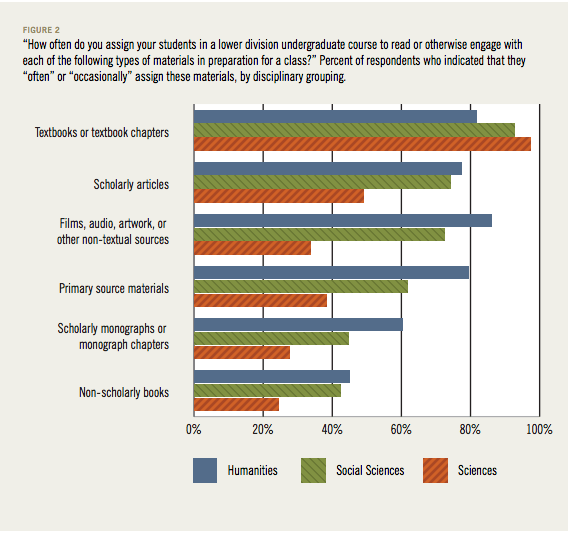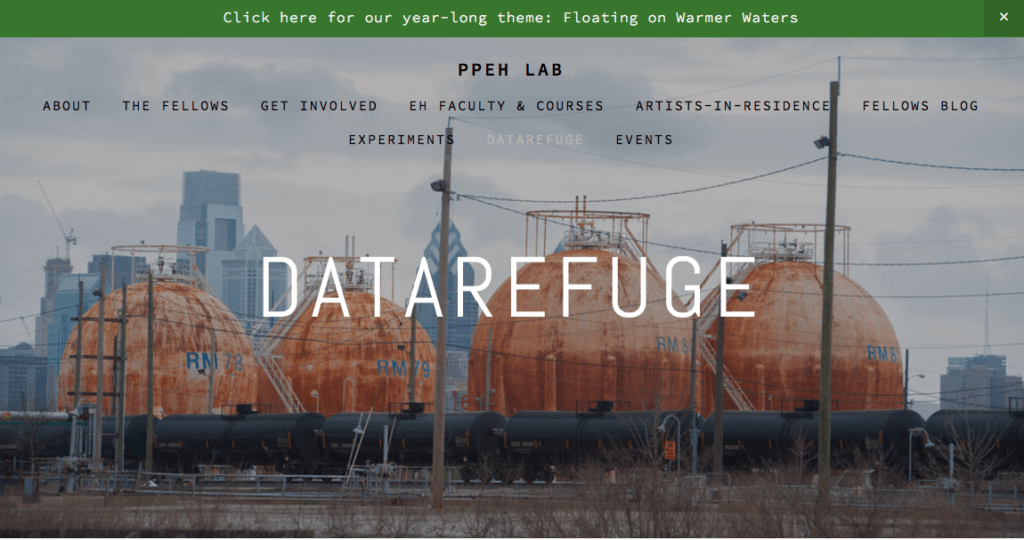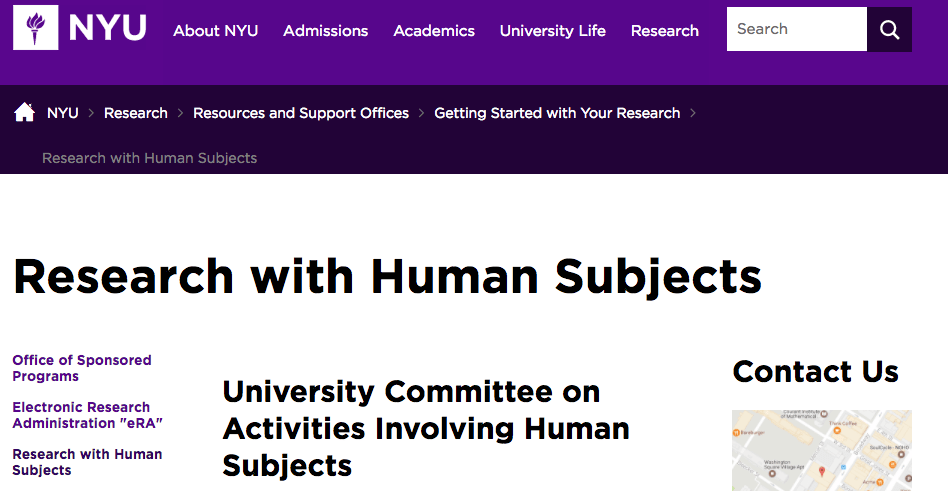As the primary goal of this collaborative is a culminating symposium in the spring of 2018 surrounding the ways in which the use of primary sources and archival materials can support and enhance scholarship and education in the sciences, we began with a discussion of a survey of NYU faculty regarding the use of primary sources in their classrooms as well as a call for papers for the symposium. In light of post-inauguration concerns about the precarious availability of federal climate and environmental data, we also engaged in a conversation about archival activism with regard to climate change.
Prior to the meeting, Chris suggested that the group members review the ITHAKA 2012 Faculty Survey which covers the findings from the fifth cycle of the Ithaka S+R Faculty Survey. In the 2012 survey cycle, specifically, the questionnaire was update to include topics of current and emerging interest, which include support service needs associated with changing research methods, data preservation, research dissemination, and undergraduate instruction.

While there was a question about the usage of primary sources in the classroom, the question types did not include the definitions of specific terms leaving room for definitional discrepancies between disciplines.

Faculty Survey 2012, p.12
For our research purposes, we concluded that would be important to identify how different fields may define primary sources as the definitions would affect the reports on their usage. We also discussed beginning the survey by addressing the discrepant nature of defining primary sources, which underlines the need for this research.
While discussing the survey questions and distribution, Chris summarized the process of University Institutional Review Board (IRB) approval and the acceptable protocols for our survey research involving human subjects.
Spring 2018 is only one year away and we have big plans for the culmination of the collaborative including: soliciting papers from a wide audience, workshopping the papers at the symposium, and publishing an edited anthology. In preparation all that we have planned, we began brainstorming topics for our call to papers and developing a timeline. Paper topics will range from best practices for collaborations between archivists and teaching faculty to archival sciences. Be on the lookout for our Call for Papers coming soon!
We ended our meeting by discussing archival activism regarding climate change data. Prior to the meeting, group members were encouraged to review information and initiatives surrounding the concerns for the public availability of climate and environmental data in the future.
The Society of American Archivists’ Climate Data Harvest Project page covers a few initiatives and ways to get involved. Much of the information was provided by the Penn Environmental Humanities Lab which has developed the DataRefuge Initiative committed to identifying, assessing, prioritizing, securing, and distributing reliable copies of federal climate and environmental data so that it remains available to researchers.

There are a number of other initiatives such as University of Texas’ Guerilla Archiving and Project_ARCC’s (Archivists Responding to Climate Change) Climate Change Syllabus. NYU University Archivist, Janet Bunde, has also provided a climate change data resources list, which includes local initiatives, informative background articles, and potential partners for collaborative actions.
With regards to climate change data preservation there are still many pressing questions and concerns:
-
- What data (including content and formats) is being captured and where is it being stored or where should it be stored?
- Preservation programs and initiatives work for publicly available data, but what can we do for data that has not been made available or is in the process of being collected or verified?
- Are there any plans to make private and unverified data available?
- Is the archived data discoverable by people who want to see it?
- How do we document the environment of data creation when data requires approval by a non-scientist? (https://www.theguardian.com/environment/2017/jan/25/donald-trump-epa-gag-order-political-review)
- How do archivists know what to collect and handle appraisal? (See the Southern California Climate Data Protection Project’s Best Practices here)
Research Collaborative members and greater Humanities for STEM community, please add your thoughts to the comments!


More efforts and news about data rescue efforts continue to pop up:
Upcoming events: Endangered Data Week (April 17-21, 2017) http://endangereddataweek.org/
“Activitsts Rush to Save Government Science Data – If They Can Find It” (about the Data Rescue event at NYU in February) https://www.nytimes.com/2017/03/06/science/donald-trump-data-rescue-science.html?smprod=nytcore-iphone&smid=nytcore-iphone-share&_r=1
“How the ‘guerrilla archivists’ saved history – and are doing it again under Trump” https://discardstudies.com/2017/03/20/how-the-guerrilla-archivists-saved-history-and-are-doing-it-again-under-trump/